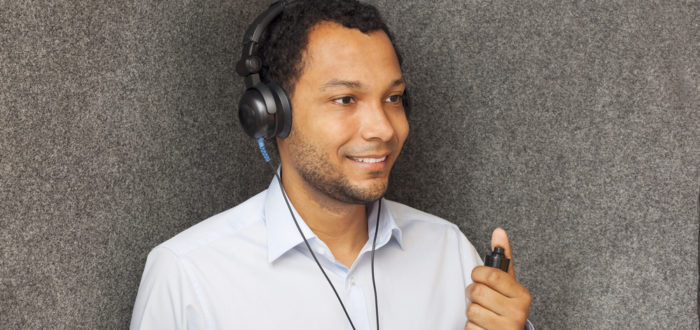Most of us know the importance of visiting our primary health care physician once a year. Most of us will also visit a dentist for an annual check up. And let’s not forget the annual eye exam. We’re creatures of habit when it comes to our annual checks.
Despite this, many of us do not have an annual hearing assessment. But the science suggests that hearing checks should be right up there with our annual health checks. According to the Hearing Loss Association of America, approximately 48 million Americans have a degree of hearing loss. This makes it the third most common health condition in the United States. Yet on average, it takes up to 7 years before people seek help!
If the numbers aren’t enough to alarm you, we want to impress the importance of annual hearing assessments. Here are 3 reasons to get your hearing checked:
- Protecting your hearing can help protect your brain – The Hearing Loss Association of America has stated that ‘hearing loss may increase the risk of cognitive problems and even dementia.’ Although further research into the links between cognitive problems and hearing loss is needed, the close relationship between your brain and your ability to hear is not disputed.
Left untreated, a hearing loss can cause additional strain on your brain. The additional stress to focus on an environment, particularly if it is a noisy environment, can leave you feeling mentally exhausted by the end of the day. Another way that an untreated hearing loss could be linked to dementia include social isolation. Help protect your brain by staying on top of your annual hearing assessments.
- Treating a hearing loss can help your mental health – According to the National Institute on Deafness and other Communication Disorders (NIDCD), 28.8 million American adults who could benefit from using a hearing aid are not using one. Besides affecting your ability to hear, the National Council on Aging have outlined that hearing impaired people who don’t use a hearing aid are more likely to report anxiety and depression.
How can a hearing loss impact your mental health? It’s a vicious cycle. A fear of not being able to hear correctly, or a feeling that you cannot be forthcoming about your hearing loss, can push people to withdraw. This withdrawal can lead to social isolation, where it’s easier to just stay at home rather than deal with any issues. This can have a knock-on effect on your confidence, and the cycle continues.
- Hearing loss could indicate more serious medical conditions – The National Institutes of Health (NIH) reported that hearing loss in people with diabetes is twice as common as those without. Your hearing loss could be an indicator of an underlying medical condition, such as diabetes. Hearing loss has also been linked to cardiovascular disease and high blood pressure.
A hearing assessment is quick, and painless. The benefits of seeking help with a hearing loss are truly worth it. If we’ve convinced you that it’s time for your annual hearing assessment, please get in touch to book an appointment today.
Get Your Hearing Checked at Regional Hearing and Balance!
Contact us at Regional Hearing and Balance Center to speak with one of our hearing professionals. We are here to take care of all your listening needs.


Recent Comments